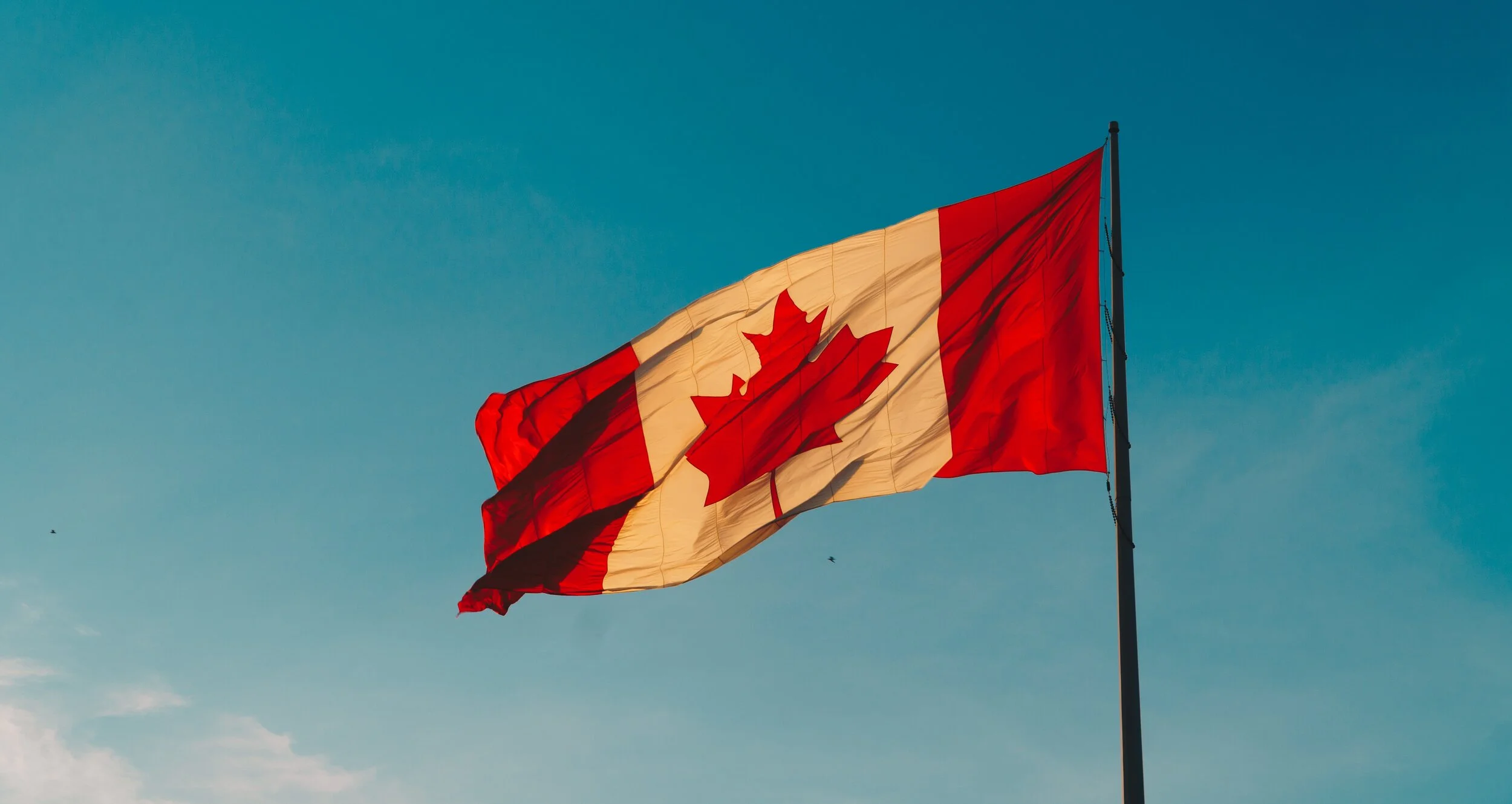Financial Insecurity in Canada
When people talk about financial security, they are often referring to the combination of factors that make up an individual’s financial condition. These factors include how much money a person has, how they manage their finances, and how prepared they are for financial emergencies, among others. On the other hand, the concept of financial insecurity can manifest itself in a variety of ways: living paycheck-to-paycheck, having more debt than assets, or being unable to withstand a sudden financial shock. It is a reality faced by millions of Canadians every day, and millions more would likely consider themselves to be precariously close to it. As people at any income level can be financially insecure, it has a profound impact on the way Canadians live and how our country operates as a whole.
Canada has one of the highest levels of household debt in the world. In a 2019 report by the Government of Canada on financial insecurity, it was reported that Canadian household debt represented 177% of disposable income, and was expected to continue to grow. That means, for every $1 the average Canadian household has to spend freely, they owe $1.77 in debt. That’s a staggering figure, especially when considered in context with the fact that 66% of Canadians also reported that they were planning on undertaking some kind of major expenditure (ex. buying a home, starting a renovation) in the next three years. Even worse, roughly one-third (31%) of Canadians say they feel they’ve accrued more debt than they can afford to pay off.
If you’re not personally dealing with financial insecurity every day, it can be easy to assume that other people’s struggles with money have no effect on you. In actuality, widespread financial insecurity in Canada adversely affects the entire population. The problem is always there, but really takes its toll in the event of a sudden economic downturn. Large, catalyzing economic events (such as those created by COVID-19) can push vulnerable individuals over the edge with their debt and into severe poverty or homelessness at an alarming speed. In order to prevent this outcome on a grand scale, our government has to offer these people some form of financial support.
The amount of money the government has to spend on economic relief is directly related to how pervasive financial insecurity was across the country before the shock occurred; a country already dealing with large-scale financial insecurity will have a larger problem to solve than one that’s more secure. In order to finance COVID relief, for example, the Canadian government has borrowed more money than it has since World War II. This means that the government will inevitably be forced to spend less on other expenditures like health care and education in an effort to compensate for the massive relief package required to keep the country afloat. Furthermore, as the government will also have less money to invest in the infrastructure and systems needed to keep a strong economy alive, commercial productivity (and therefore wages) can become stagnant. Despite this, the cost of living will continue to rise, so an ever-increasing number of Canadians will find themselves at risk of becoming financially insecure. The super-wealthy are often unaffected by this kind of economic contraction, but the vast majority of Canadians undoubtedly feel the strain caused by national financial insecurity.
However, beyond all the negative implications for the country as a whole, it can’t be emphasized enough that the stress caused by financial insecurity can really ruin a person’s life. Research supported by the Canadian government from 2018 shows that nearly half (48%) of Canadians have lost sleep over their financial problems. Many Canadians are regularly forced to make tough choices when it comes to covering the cost of their essentials (like choosing to pay for rent or food), meaning they’re concerned about basic survival on a daily basis. Anyone who’s experienced the fear caused by money stress knows that it’s extremely powerful: it seeps into your day-to-day thoughts and makes it tough to smile, laugh and enjoy anything positive. It negatively affects all aspects of life, including your mental and physical health, your ability to perform your job properly and your relationships with other people. Financial stress can be crippling, and many people with financial problems suffer alone due to the shame they feel admitting they need help.
Financial insecurity as a whole is created by a combination of internal, external and systemic economic factors. Internal factors are those established by individual responsibility or condition, such as regularly accruing an excessive amount of credit card debt or having to provide for a family of four. External factors are those created by larger global systems that can’t be changed by the average individual, such as general economic conditions and the rising cost of living. Systemic or institutional factors are conditions created by the economic policies and practices of our government, such as offering Employment Insurance and the Canada Pension Plan.
These three kinds of factors combine to create a different financial reality for every Canadian, depending heavily on their individual demographics and history. Different demographic groups also vary in their beliefs on who or what should be responsible for helping resolve the issue. For example, many women feel the effects of the gendered pay gap and thus earn less money than their male co-workers. As a result, these women are more likely to experience financial insecurity, even if they’re better at managing their money than their male co-workers. Women of colour are even more likely to feel this strain, and those that are single moms would feel it even more. As this kind of financial insecurity isn’t created by individual choice (if you offered women higher wages, they would surely take them), women are more likely to believe that financial insecurity is less about individual choices and more about the effects of external and systemic pressures.
With all that said, you may be wondering, what can I really do about financial insecurity? The problem is vast, so it’s not unusual to be overwhelmed by it. However, you can adopt a few regular habits that will not only help you protect yourself from becoming financially vulnerable, but can really benefit our country as a whole in the process.
Be Prepared
This should go without saying given the global events of 2020, but looking forward, it’s smart to be the habit of preparing for sudden economic shocks. It’s not a question of if another major recession will come, but when. Without an expert level of knowledge on global financial patterns, you won’t be able predict its date, but you can bet it’s coming and you should be prepared for it.
In the same way that the 2008 financial crisis caused long-term financial damage to many Canadian households, COVID-19 will do the same. Canadian households will be more sensitive to shocks in the coming years and more economic trouble could be triggered easily by unpredictable global events. It’s not a nice thing to think about (and you shouldn’t let it keep you up every night) but it’s impractical not to consider what you’ll do the next time things go left. Do your future self a favour and be prepared for a period of financial struggle.
Save More
This is obvious, but still not something that’s practiced widely enough. You can start saving money even if you don’t make very much of it, and you should! This is the true key to protecting yourself from financial insecurity, and for those who are currently experiencing it, saving is the only clear way out of their troubles with money management. Saving will not only help you better manage your day-to-day expenses, but it may even help you avoid getting into the kind of life-altering debt that can be brought upon by sudden economic downturns.
Having an emergency fund is something recommended by all financial advisors, and is something we strongly suggest all QUBER users start. If you’ve never taken saving seriously before, this is an ideal thing to set as your first goal. Admittedly, it’s less fun to save for than something like a vacation or a new car, but if unexpected expenses arise and you don’t have an emergency fund, you’ll have to pull from your other goals to cover them anyways. As a general rule of thumb, you should have one month’s worth of income saved away in the event of unforeseen financial trouble, like being laid off. Over a longer period of time, you should aim to increase that amount to somewhere between four to six months of income. If you’re looking to get started, you can easily start an emergency Saving Jar in QUBER by clicking here.
However, saving more money doesn’t stop at just putting away more of it; it’s also directly tied to spending less. Of course, we don’t mean you should forego the things you need, but many of us regularly spend more on non-essential items than we can truly afford to (as evidenced by Canada’s high debt-to-disposable income ratio). As mentioned above, accruing an excessive amount of credit card debt is considered to be one of the main internal factors that contribute to financial insecurity. This is an area where you can proactively affect change in your own life, so learn to be mindful of the ways you use your credit card and be sure you’re paying off your credit card bill in full when you get paid. Paying $300 on your balance every payday but then spending $800 over the following two weeks is the same as throwing a cup of water on a fire; great intentions, horrible execution! Just because you have access to a large amount of credit does not mean you should use it. By paying off only a small portion of what you owe each pay period, you create a harmful illusion for yourself of having extra wealth to pull from through your credit card (credit card companies thrive on this!). But, it’s exactly that; an illusion. This kind of financial habit will put you in a vulnerable position that highly increases your chances of falling into serious debt and racking up a ton of interest fees.
Ask About Financial Benefits
One of the great ways you can seek out some extra financial support is through your employer. Of course, everyone’s situation is different, and you may already be participating in some kind of financial benefits program through your job (like a 401k). However, are you 100% sure you know about what’s available to you? There may be financial benefits available that you’re unaware of, and if so, you should be taking advantage of them!
If your employer isn’t offering any financial benefits at present, remember that you can always ask them to step up. In a 2020 report by Build Commonwealth, 65% of Americans agreed that employers should be stepping up to help their staff reduce the impacts of financial insecurity in their lives. Though this data isn’t from Canada, we can assume that the results would be pretty similar if taken here instead! The worst outcome that can happen by talking to your boss about introducing benefits? They’ll say no. The best? You and your co-workers end up with a new benefits package that will help all of you protect yourselves better against a sudden financial shock.
Get Educated & Involved
Finally, you don’t need to learn everything there is to know about finance and economic policy, but you should be able to understand the basic concepts and metrics that comprise personal finance and effective money management. Without this kind of baseline of knowledge, you not only can’t solve financial problems effectively, but you don’t stand a chance of catching them before they occur. You should be constantly aware of the numbers that make up your personal relationship with finance, whatever they may be: how much money you have in savings, your credit card balance, how much you owe on your mortgage, the value of your assets, and so on. Knowing this information will give you the background you need to make informed choices with your money and help you from falling into a cycle of financial stress.
Finally, if you really want to affect change to end financial insecurity in our country, it’s important to get politically involved. Educate yourself on the economic policies of our country’s major parties and find out what they’re doing to combat financial insecurity, then align yourself with whichever you deem to be correct. Lend your voice to their issues, and speak up when you feel there are things they could be doing differently. We’re often too quick to assume that we live in a country so large that one voice doesn’t make a difference, but you’re far from alone if you believe our government must play an integral role in minimizing financial insecurity in Canada. It’s worth your time to participate, even if only a little bit - you may help improve the lives of millions of Canadians in the process.
Check back to Money Talks every Monday for a new post featuring more tips and tricks on how to reach your saving goals, and subscribe to our mailing list for blog updates!
Have a suggestion for something you’d like us to write about? Shoot us a message at contactus@quber.ca and we’ll get to work.






